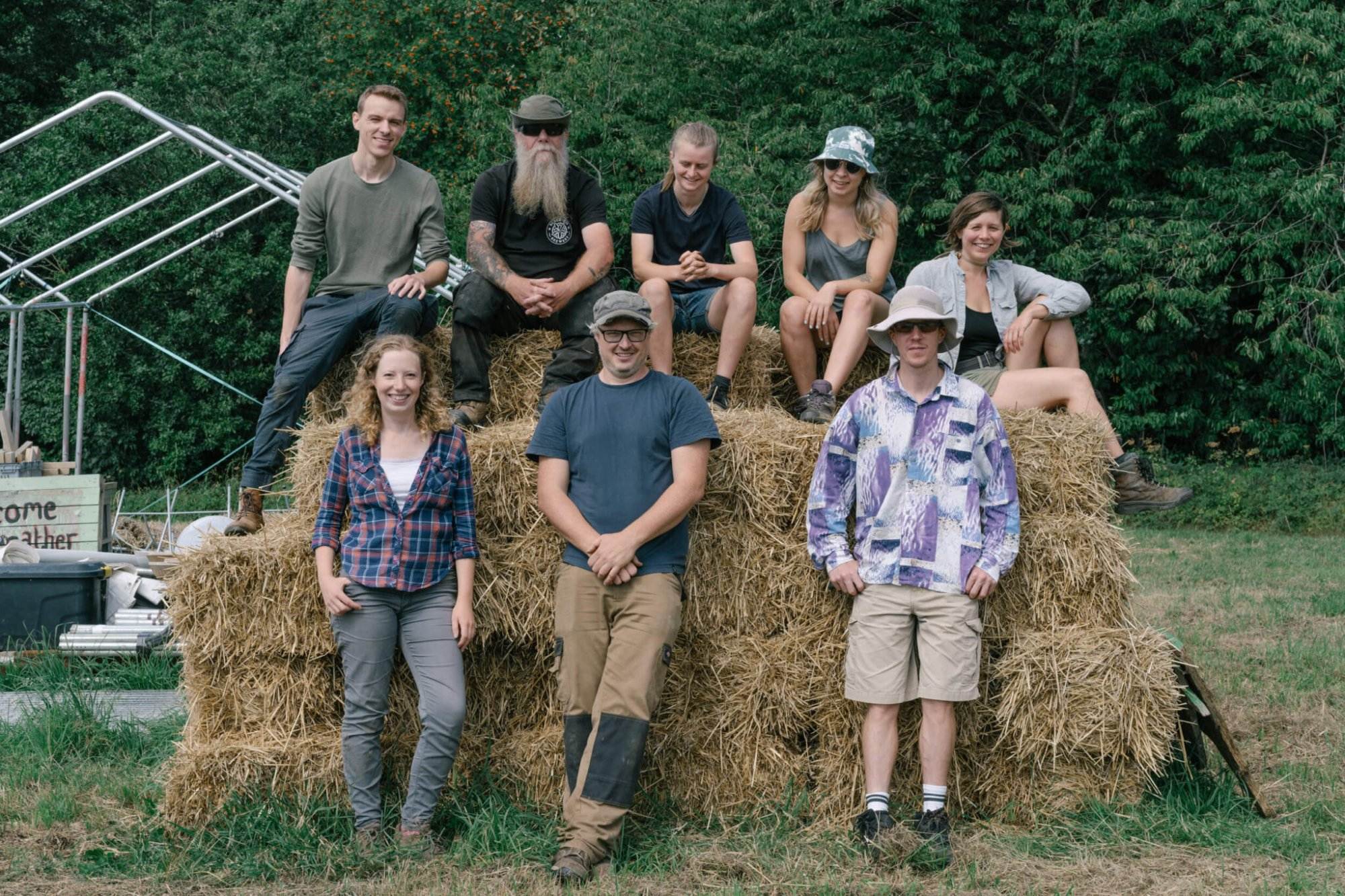It’s always great to hear about good food stories happening in Sheffield, and it’s even more exciting when those outstanding projects reach national headlines too. Regather Farm, based in the Moss Valley, Sheffield, has been shortlisted for a BBC Food & Farming Award. These awards are all about honouring those who have done the most to promote the cause of good food. And we can safely say that Regather, a ShefFood partner, deserves this national recognition. Their commitment to better food without sacrificing people or the planet is an excellent example of fairer and greener food in our city.
Who are Regather, and why have they been selected?
If you’ve not heard of Regather, they are a community benefit society working to improve the local food system and build community in Sheffield. They are known for their organic farm and veg box scheme but are also involved in many community projects. They are helping others develop their growing skills with their Club Garden Growers group and, as of 2023, supporting food growing in schools. They provide advice and design services to households, community groups and institutional clients to help improve the biodiversity and fruitfulness of their land. Their community apple pressing project, which collects surplus apples every autumn, is about reducing waste and bringing people together with food and drink. Regather also works with The Institute for Sustainable Food at The University of Sheffield to research and develop policies using a real-life environment for testing. Everything they do is centred on creating more sustainably sourced food, supporting local economies and establishing more democratically controlled systems. These projects and more are why Regather has been shortlisted for the BBC Food & Farming Award, The Farming Today Farming for the Future Award.
We spoke to Fran Halsall about the award. Fran is a Research Associate with the South Yorkshire Sustainability Centre and member of the Urban Agriculture Task Force based at Regather/
“Regather is delighted to be shortlisted for the Farming for the Future Award. The award not only recognises the hard work that goes into growing fruit and vegetables sustainably but also our role in connecting the many different aspects that together form the local food system. It also acknowledges our ongoing advocacy for the teaching of the skills required to increase Sheffield’s food-producing capacity using methods that help undo the damage caused by decades of intensive farming.”
The BBC Food & Farming Awards were launched in 2000 to mark the 20th anniversary of Radio 4’s The Food Programme. The awards’ mission statement was to honour those who have done the most to promote the cause of good food. The Farming Today Farming for the Future Award focuses on farmers who are embracing new growing solutions to benefit the environment. Whether that’s pioneering innovative tech to improve animal welfare, exploring new ways to make good food accessible, or developing sustainable strategies to inspire the next generation of farmers. Regather’s regenerative farming practices and community-based research into developing a better local food system put them miles ahead of traditional farming when it comes to supporting community and climate. It’s the approach to get much more on board with, and soon.
How Regenerative Agriculture Works
The Farming for the Future Award puts the environment as priority number one, and farming practices such as agroecology and regenerative agriculture are powerful ways to make farming in the UK better for all. Both approaches share many important values based on observation of nature and working within the planet’s limits. Both focus on improving biodiversity, enhancing soil health, reducing water and resource use, and promoting the value of and based livelihoods replete with the skills necessary to restore damaged ecosystems. These principles work together to position agriculture as a solution to climate change, working with, rather than against, nature and empowering farmers, growers and communities to make the right decisions for themselves and the planet.
But how do these techniques work? For regenerative farming, the principle is that healthy soil produces bigger yields of more nutritious food. While the planet may seem vast, agricultural land is limited, and decades of use of heavy machinery, fertilisers and pesticides in intensive farming have damaged the soil. We need to rebuild the soil using natural solutions. Reducing ploughing by adopting a minimal tillage approach or the so-called no-dig method, increasing plant diversity, implementing crop rotation and using compost, manure, and wood chips are all ways that can help heal the soil.
Agroecology uses practices we already see in the natural environment to improve food production and help the planet. Woods, for example, can be used for grazing animals. Agroforestry grows crops in the alleys between rows of planted trees, an age-old technique that is a highly effective way of using land. Instead of creating fields of just one crop (mono-crops) like wheat, a woodland is a natural ecosystem that can boost biodiversity. Grazing animals under the tree canopy can provide them shelter and food, whilst their manure enriches the soil. Woods are perfect for growing fruits and nuts, as well as timber. A woodland ecosystem provides a richer habitat both above and below the ground, with niches for many more different types of wildlife compared to a field of mono-crops.
Farming for the Future: Better Food, Bigger Impact
While bigger and better yields of food are what we want to see so that everyone can eat a nutritious diet, this should be achieved through regenerative practices that positively impact the planet too.
Healthy soil, kept covered with plants, holds more carbon and reduces emissions currently contributing to climate change. Focusing on local agriculture that feeds its community reduces emissions through decreased transportation and packaging. A diverse and connected underground root system is essential to soil health. The roots of trees, shrubs and perennial plants transport nutrients deep down into the earth. Fields growing annual crops that are left uncovered at the end of the season have little in the way of root structure, making flooding during extreme rainfall and soil erosion all the more likely. This is a risk for nearby people and can also negatively affect the area’s wildlife. Animals can be caught up in floods; agricultural chemicals and effluent can enter waterways and kill off aquatic species; soil erosion can choke rivers and be carried out to sea, where the sediments can devastate sea life.
Better soil health is vital for producing more nutritionally dense food, but it also massively supports the local wildlife population. From the billions of microorganisms in just a teaspoon of soil, the wiggly worms and bugs of your compost heap, through to birds, bats and badgers, we are all connected to each other through the fate of the soil under our feet. Healthy soil is the literal foundation of how to live well on Planet Earth. A healthy ecosystem provides plenty of food sources for pollinators, whose services are vital to the success of most crops we eat. Building a habitat for insects is essential if we want to keep eating.
How can I support this?
The easiest way to support agroecological and regenerative farming is to engage with local farmers and growers in Sheffield. Regather is just one of a number of farmers in Sheffield using regenerative techniques to build resilient food systems & communities. Supporting your local food producers is as simple as changing your weekly shop. You can sign up for a veg box scheme to get fresh fruit and veg every week or choose organic and locally sourced produce in shops and markets.
The more people that support local, sustainable farming, the more voices we can add to the call for a better food system. National and local government needs to change policies and adapt funding to help new farmers access training, education, and land for sustainable food-growing businesses. Better soil, biodiversity and food are possible, but we need changes in the agricultural sector now.

